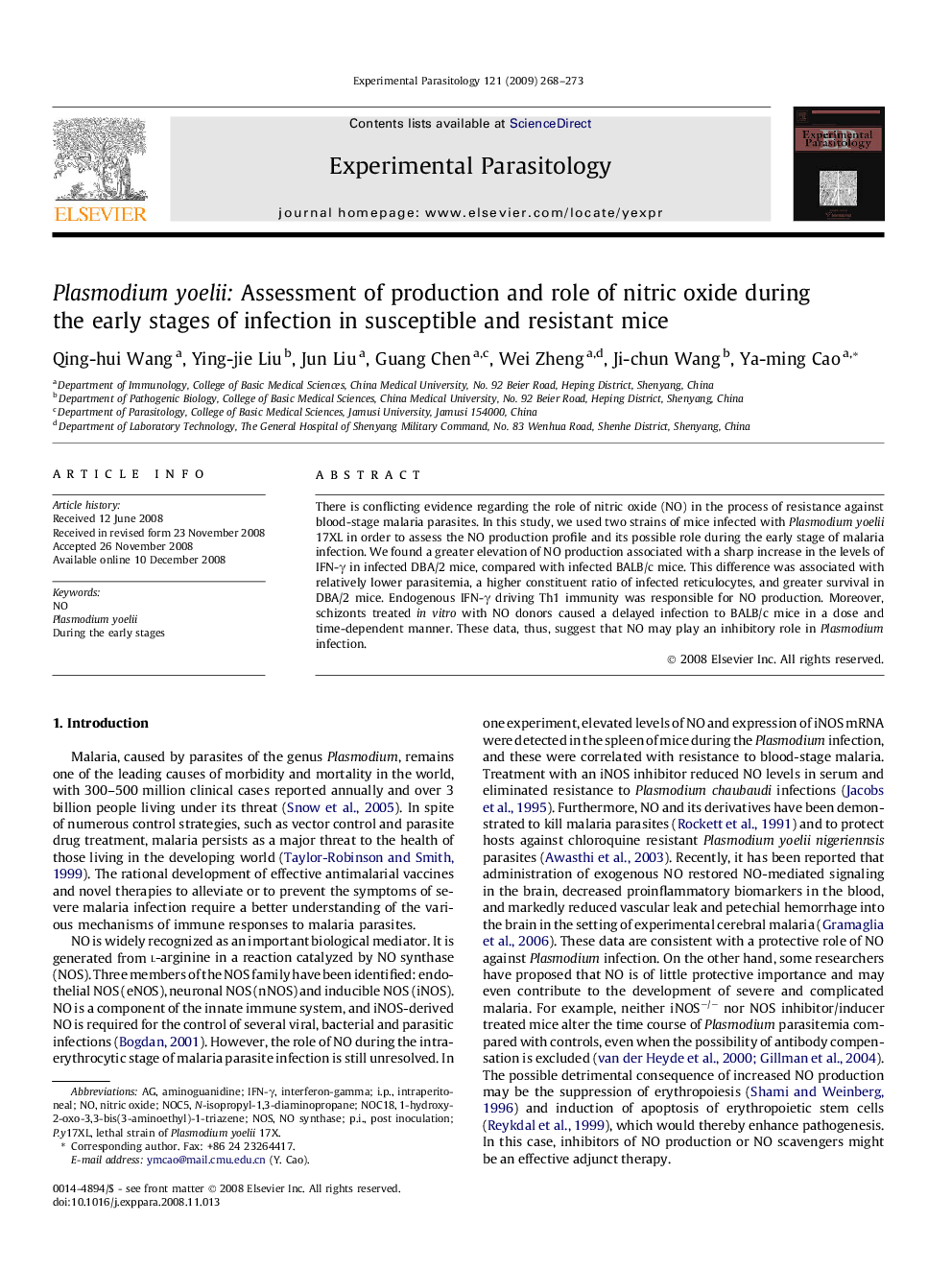| Article ID | Journal | Published Year | Pages | File Type |
|---|---|---|---|---|
| 4371951 | Experimental Parasitology | 2009 | 6 Pages |
There is conflicting evidence regarding the role of nitric oxide (NO) in the process of resistance against blood-stage malaria parasites. In this study, we used two strains of mice infected with Plasmodium yoelii 17XL in order to assess the NO production profile and its possible role during the early stage of malaria infection. We found a greater elevation of NO production associated with a sharp increase in the levels of IFN-γ in infected DBA/2 mice, compared with infected BALB/c mice. This difference was associated with relatively lower parasitemia, a higher constituent ratio of infected reticulocytes, and greater survival in DBA/2 mice. Endogenous IFN-γ driving Th1 immunity was responsible for NO production. Moreover, schizonts treated in vitro with NO donors caused a delayed infection to BALB/c mice in a dose and time-dependent manner. These data, thus, suggest that NO may play an inhibitory role in Plasmodium infection.
